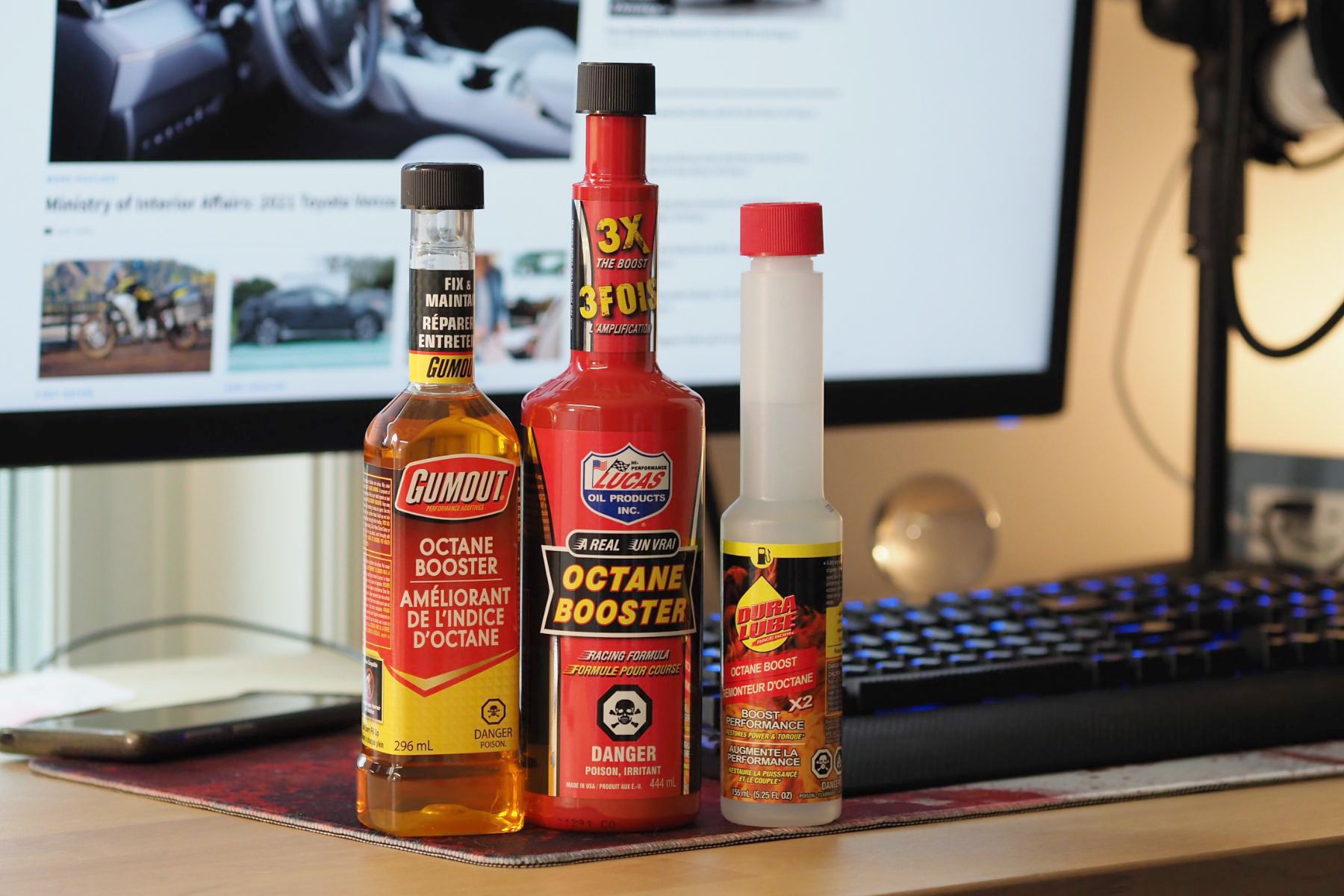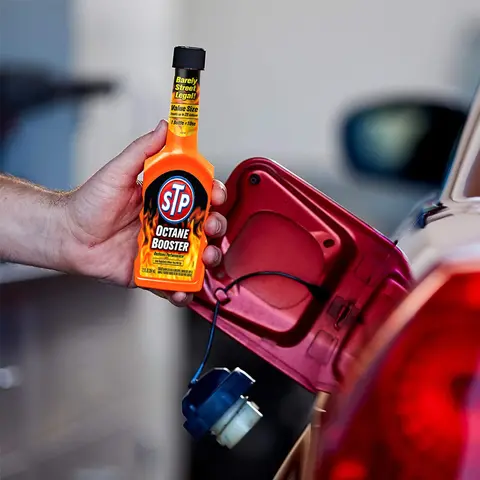Introduction
If you’re a car enthusiast or someone who simply wants to get the most out of your vehicle, you’ve probably heard of octane boosters. But what exactly are they, and how can they help? Octane boosters are fuel additives designed to increase the octane rating of gasoline, which can enhance engine performance, reduce engine knock, and even improve fuel efficiency.
Before diving deeper into the topic, it’s essential to understand the role of octane in your fuel and why using an octane booster might be beneficial.
What is an Octane Booster?
An octane booster is a chemical additive that increases the octane rating of your gasoline. The octane rating indicates the fuel’s ability to resist knocking or pinging during combustion, which can cause damage to your engine. In essence, the higher the octane, the smoother your engine will run under stress, such as when you accelerate or drive at higher speeds.
Importance of Octane Levels in Fuel
Octane levels are critical for high-performance engines. Lower-octane fuel can result in engine knocking, where fuel combusts prematurely in the engine, leading to inefficiencies and potential damage. An octane booster helps by raising the fuel’s resistance to premature combustion, ensuring smooth operation and protecting your engine.
How Does an Octane Booster Work?
The Science Behind Octane Boosters
Octane boosters work by altering the chemical structure of gasoline. They typically contain compounds like Methylcyclopentadienyl Manganese Tricarbonyl (MMT) or toluene, which increase the octane level in the fuel. When you add the booster to your gas tank, it mixes with the fuel and helps prevent the knock caused by low-octane gasoline.
Role of Octane in Preventing Engine Knock
Engine knock occurs when fuel burns unevenly inside your engine’s combustion chambers. This uneven combustion can create shock waves that sound like knocking. By raising the octane rating, octane boosters help fuel burn more evenly, reducing the likelihood of knocking and improving performance.

Benefits of Using Octane Boosters
Improved Engine Performance
When you use an octane booster, your engine can run at higher compression ratios, which leads to better performance. This is especially important for high-performance vehicles that demand premium fuel.
Reduced Engine Knock and Pinging
The primary function of an octane booster is to eliminate engine knocking. This not only prevents potential damage to your engine but also provides a smoother driving experience.
Enhanced Fuel Efficiency
While not always guaranteed, many users report improved fuel efficiency after using octane boosters, especially in high-compression engines.
Extended Engine Lifespan
Using an octane booster can prevent long-term damage caused by engine knock, which could otherwise shorten the life of your engine.
When Should You Use an Octane Booster?
High-Performance Vehicles
Octane boosters are especially beneficial for high-performance cars, motorcycles, and trucks that require premium fuel. If you’re pushing your engine hard, it can give you that extra performance edge.
Preventing Engine Damage in Older Cars
Older vehicles with worn-out components are more prone to knocking. Using an octane booster can help alleviate these issues by providing the extra octane needed to smooth out engine operation.
Situations Where Fuel Quality is Poor
In some areas, the fuel quality can be inconsistent, which can lead to lower octane ratings than what your vehicle requires. Octane boosters can correct this issue, allowing your engine to function at its best.
Types of Octane Boosters
Street-Legal Octane Boosters
These are safe to use for everyday driving. They improve the octane level without causing harm to your catalytic converter or fuel system.
Race-Specific Octane Boosters
These boosters are designed for use in high-performance race cars. They often contain stronger chemicals that significantly raise the octane level, but they aren’t suitable for regular street driving due to their potential impact on emissions and engine wear.
Additives in Octane Boosters: What to Look For
When choosing an octane booster, look for ingredients like MMT, toluene, and other effective octane-enhancing agents. Be cautious of products with too many fillers or ineffective ingredients.
Octane Booster vs Premium Fuel
Key Differences
Octane boosters and premium fuel both aim to increase the octane level of your gasoline, but octane boosters offer more control. Premium fuel at the pump has a fixed octane level, while boosters allow you to tailor the octane level to your engine’s needs.
Cost Comparison
While premium fuel is more expensive, octane boosters can be a cost-effective solution when used occasionally.
Performance Implications
In most cases, octane boosters can offer a performance boost similar to that of premium fuel, but they allow you to avoid the continuous cost of high-octane gasoline.
How to Choose the Right Octane Booster
Compatibility with Your Vehicle
Always ensure that the octane booster you choose is compatible with your vehicle’s engine type and fuel system.
Octane Rating Requirements
Know your vehicle’s octane requirements by checking the owner’s manual. Using an octane booster can help meet these requirements when premium fuel isn’t available.
Brand Reputation and Reviews
Look for trusted brands like Lucas Oil, Royal Purple, and STP. Read customer reviews and consult expert opinions to choose the best product.
How to Properly Use an Octane Booster
Step-by-Step Guide to Adding Octane Booster to Fuel
- Start with an empty gas tank.
- Pour the recommended amount of octane booster into the tank.
- Fill up your tank with gasoline.
- Drive normally, allowing the booster to mix thoroughly.
Dosage Recommendations
Follow the instructions on the label for proper dosing, as too much booster can be wasteful and potentially harmful.
Common Mistakes to Avoid
Avoid using too much octane booster or adding it to a full tank of gas, as this can reduce its effectiveness.
Are Octane Boosters Safe?
Potential Risks
While generally safe, some octane boosters can be harmful if overused. Always follow the manufacturer’s guidelines.
Environmental Considerations
Some octane boosters contain chemicals that can increase emissions. Look for eco-friendly options when possible.
Safety Precautions When Handling
Wear gloves and work in a well-ventilated area when handling octane boosters. Always keep them out of reach of children.
Myths and Misconceptions About Octane Boosters
Myth 1: More Octane Always Equals More Power
Higher octane doesn’t always result in more power, especially if your engine doesn’t require it.
Myth 2: Octane Boosters Are the Same as Fuel Additives
While both are fuel additives, octane boosters specifically raise the octane rating, whereas other additives serve different purposes.
Myth 3: Octane Boosters Can Damage Engines
Most high-quality octane boosters are safe when used correctly, but overuse can lead to deposits in the engine.
Octane Boosters for Different Types of Engines
Gasoline vs Diesel Engines
Octane boosters are for gasoline engines only. Diesel engines require a different set of additives.
Turbocharged and Supercharged Engines
High-performance turbocharged engines benefit the most from octane boosters due to their higher compression ratios.
Motorcycle and Small Engine Applications
Many octane boosters are safe for use in motorcycles and other small engines, but always check the label for compatibility.
Do You Really Need an Octane Booster?
Assessing Your Vehicle’s Needs
If your engine knocks or pings, or if you drive a high-performance vehicle, an octane booster could be beneficial.
Alternatives to Octane Boosters
If you don’t want to use an octane booster, using premium fuel consistently can help maintain engine performance.
Environmental Impact of Octane Boosters
Emissions Considerations
Some octane boosters can increase emissions, though newer, eco-friendly formulas are available.
Are There Eco-Friendly Options?
Yes, some manufacturers now offer environmentally-friendly octane boosters designed to reduce harmful emissions.
Top Brands in the Octane Booster Market
Lucas Oil
Known for its reliability and performance.
Royal Purple
Popular among performance enthusiasts for its powerful formula.
STP
A more affordable and accessible option that’s widely available.
Torco
Preferred by race car drivers for its high-octane results.
FAQs
- Can I use an octane booster in any car?
- Yes, but always check your car’s requirements and the product’s compatibility.
- How often should I use an octane booster?
- It’s best to use it only when needed, such as before high-performance driving or when fuel quality is poor.
- Are octane boosters bad for the environment?
- Some boosters can increase emissions, but eco-friendly options are available.
- Will octane boosters improve my car’s acceleration?
- In high-performance vehicles, they can help improve acceleration by preventing engine knock.
- Is it okay to mix octane booster with premium fuel?
- Yes, mixing it with premium fuel can further boost octane levels for improved performance.
Conclusion
Octane boosters can be a great tool for improving engine performance, reducing knock, and extending the life of your vehicle’s engine. While they may not be necessary for every driver, they are particularly useful for those with high-performance engines or who live in areas with lower-quality fuel. Choosing the right booster, using it correctly, and knowing when it’s appropriate can help you get the most out of your car.




